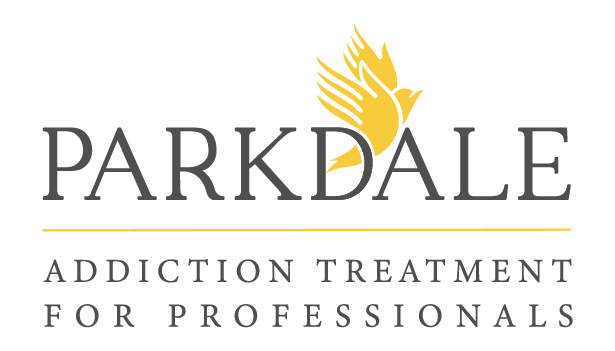Parkdale CEO, Rodrigo Garcia will address attendees at the National Organization of Alternative Programs (NOAP) in San Antonio, Texas to discuss the addiction crisis amongst health care professionals. During the April 28-April 30 National Symposium, Mr. Garcia will present his highly regarded “Catch Me If You Can” presentation which depicts the impaired professional managing the care of patients. Drawing from his vast professional experience in the health care industry as a board certified nurse anesthetist, his formal didactic studies in addiction and health care, his role as CEO of Parkdale Recovery Center, and his personal experience, Mr. Garcia depicts the challenges, struggles, and societal implications of the impaired health care provider. In experts from an interview with Mr. Garcia, he stated the following:
Interviewer: We hardly ever hear about this so how big of a problem is this really?
Mr. Garcia: That in it self is part of the problem. The potential fallout and publicity hospitals will receive if the news of an impaired provider got out could be detrimental to their image. This often encourages the facilities to act swiftly and quietly although not necessarily in the best interest of all involved. According to the National Safety Council, 1:15 people currently suffer from some form of substance use disorder. Those numbers are estimated to be closer to 1:10 for health care workers for a variety of reasons including increased stress, accessibility to controlled substances, and expert knowledge in how to use them.
Interviewer: That number seems very high. I would expect to see impaired health care providers falling over themselves in the hospitals. How does the impaired provider typically present?
Mr. Garcia: That is a great question. In fact, it can be very difficult to detect unless you are looking for it specifically. The impaired provider can present in many ways that, on the surface, may not appear significant until a sentinel event occurs. An impaired provider can be: A surgeon who is hung over from the night before, A radiologist suffering from withdraw symptoms and unable to concentrate, a pharmacist that is diverting pills from patients leaving them in pain, a nurse that is actively under the influences of drugs or alcohol and forgets to administer a medication, a technician who is switching out medications and infecting unsuspecting patients, or the anesthesiologist that just overdosed in the bathroom. As you can see, the implications on the patients can be quite profound.
Interviewer: I am still surprised as to nearly 10% of providers being “sub-optimal” due to some form of substance use. These providers have spent years of their life and significant financial sacrifices to be accomplished professionally. The burning questions is “WHY?” would they do this?
Mr. Garcia: Although there are some factors that may predispose people to addiction or alcoholism, there is usually a precipitating event. Sometimes it is increased personal stress, a prescription for pain after surgery, a chronic medical condition, or a significant life event. The event coupled with maladaptive coping skills and a genetic predisposition creates a perfect environment for the addiction to seed it self and take root. In other words, the addiction and subsequent addictive behaviors usually have a benign onset. In fact, at some point most of our patients say a variation of “ I once said I would NEVER do those things yet here I am”.
Interviewer: If that is the case, why don’t they ask for help before they get caught or hurt someone else?
Mr. Garcia: Unfortunately, society does not allow that to happen so easily. The stigma associated with the word ADDICTION or ADDICT and the common punitive response to it often dissuades people from asking for help. It is easy to track the “scarlet letter” of addiction through work history, insurance submissions, legal fall out, and general town hall gossip. Once the stigma is placed, it and all its’ prejudices are hard to shake. As a result, the addict will try to stop on their own repeatedly, until the subsequently get caught. Ill ask you a similar question, and be honest, what is the first thing you think about when you hear that your nurse is a recovering drug addict? Furthermore, does the word “recovering” bear any weight?
Interviewer: Point taken, I can see how that could be a problem. I am sure there is no simple solution but what is one thing you would suggest that we could all do about this apparent epidemic?
Mr. Garcia: You are right; solving this problem will require the dedicated concerted efforts of many. However, we can all start by learning more about this disease and realize that not talking about it is making it worse. The facts are that nearly everyone is affected by addiction or alcoholism. One in ten people live with addict or alcoholic and one in three know an addict first hand. The only way this gets better if we all commit to talking about it with an open mind and more importantly, an open heart.
Mr. Garcia continued the interview by discussing proposed solutions for health care facilities, suggesting ways the general public could help safeguard their care, and provided resources / advice for the impaired professional.
Rodrigo Garcia possesses an MBA with a focus in Health Care Administration; he is a Board Certified Nurse Anesthetist, Advanced Practice Nurse, and Critical Care Registered Nurse with over 20 years of patient care experience. He is also the current CEO of Parkdale Center, a treatment center specializing in the holistic management of the impaired professional. To contact Mr. Garcia directly or to request a speaking engagement with your facility, please email rgarcia@parkdalecenter.com





